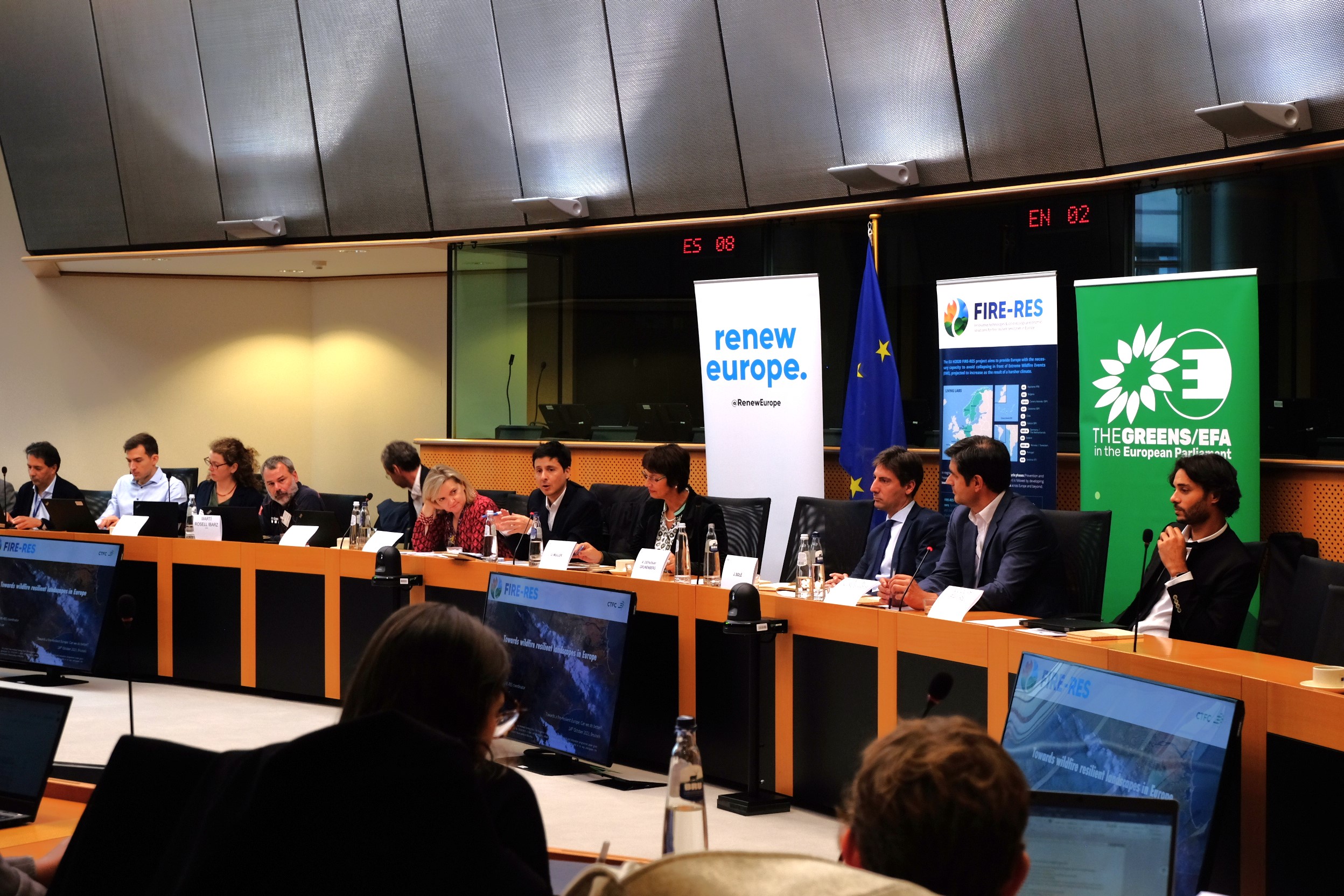Europe needs a change of paradigm to better deal with extreme wildfires, which are being exacerbated by climate change. This was the main message of the policy debate organised by Euromontana as part of the FIRE-RES project at the European Parliament on 24 October.
During the debate, MEPs Ulrike Müller and Jordi Solé, co-organisers of the event, both emphasised that the challenge of forest fires is no longer a problem for southern countries, as fires are becoming more widespread across Europe. While the European Union is active in the fight against forest fires, particularly through European funding, they pointed out that more needs to be done to achieve resilience. This message was echoed by MEP Anna Deparnay-Grunenberg, who questioned the lack of interaction between the various stakeholders on the ground, in particular foresters and farmers, and suggested that more should be done to promote education in a context where about 90% of fires are human induced.
Hanna Jahns, Director at the European Commission’s DG ECHO, echoed the MEPs’ views, adding that investment in equipment such as fire-fighting planes could help, but would not solve everything. The European Union is increasingly moving towards prevention and not just emergency response, she explained. At the request of Member States, the European Commission presented a Wildfire Prevention Action Plan in September 2022 to build capacity to prevent wildfires, improve knowledge on wildfires for better prevention, and increase financing of wildfire prevention actions.
However, discussions highlighted the lack of a global approach and coherence between the different policies that address the issue of fires, in particular through agricultural, environmental, climate change and land-use planning policies.

Improving territorial resilience to forest fires
In the face of climate change, which is leading to rising temperatures, worsening droughts and an increase in phenomena such as extreme forest fires, FIRE-RES aims to develop an integrated approach to fire management and innovations that will enable Europe to be more resilient to fires.
This Horizon2020 project, in which Euromontana is leading dissemination and communication activities, brings together forest stakeholders, firefighters, researchers and industry to work on prevention and preparedness, fire detection and response, and landscape adaptation and restoration. With the new reality of higher frequency and intensity fires, suppression capacity has collapsed. It is thus important to adopt a more holistic approach and increase prevention and recovery capacities
Fire risk in mountain areas
Mountain areas are particularly vulnerable to forest fires. The Joint Research Centre’s latest annual report on forest fires, published in October 2022, shows that 500,500 hectares of land had burned by 2021, including 100,000 hectares in Natura 2000 areas, which are particularly important in mountainous regions.
Every year, mountainous areas in Spain, France, Romania, Portugal, and Greece, among others, are particularly affected by forest fires. In its 2022 report, the Joint Research Centre also highlighted the difficulty of fighting fires in mountain areas, where geographical constraints – such as steep slopes and remote, hard-to-reach areas – make the work of firefighters more difficult.
As part of FIRE-RES, 11 Living Labs have been set up, including in the mountainous areas of Portugal, Sardinia (Italy), Catalonia and Galicia (Spain) and Greece, to help these communities develop innovations tailored to their specific situation.
Euromontana welcomes the insightful debate that took place between forest stakeholders, researchers, and European policy makers. At a time when 2022 was a record year for forest fires and 2023 is marked by a severe drought, Euromontana is committed to bringing mountain stakeholders together on these issues to ensure the resilience of our territories in the face of forest fires.
25 October 2023









